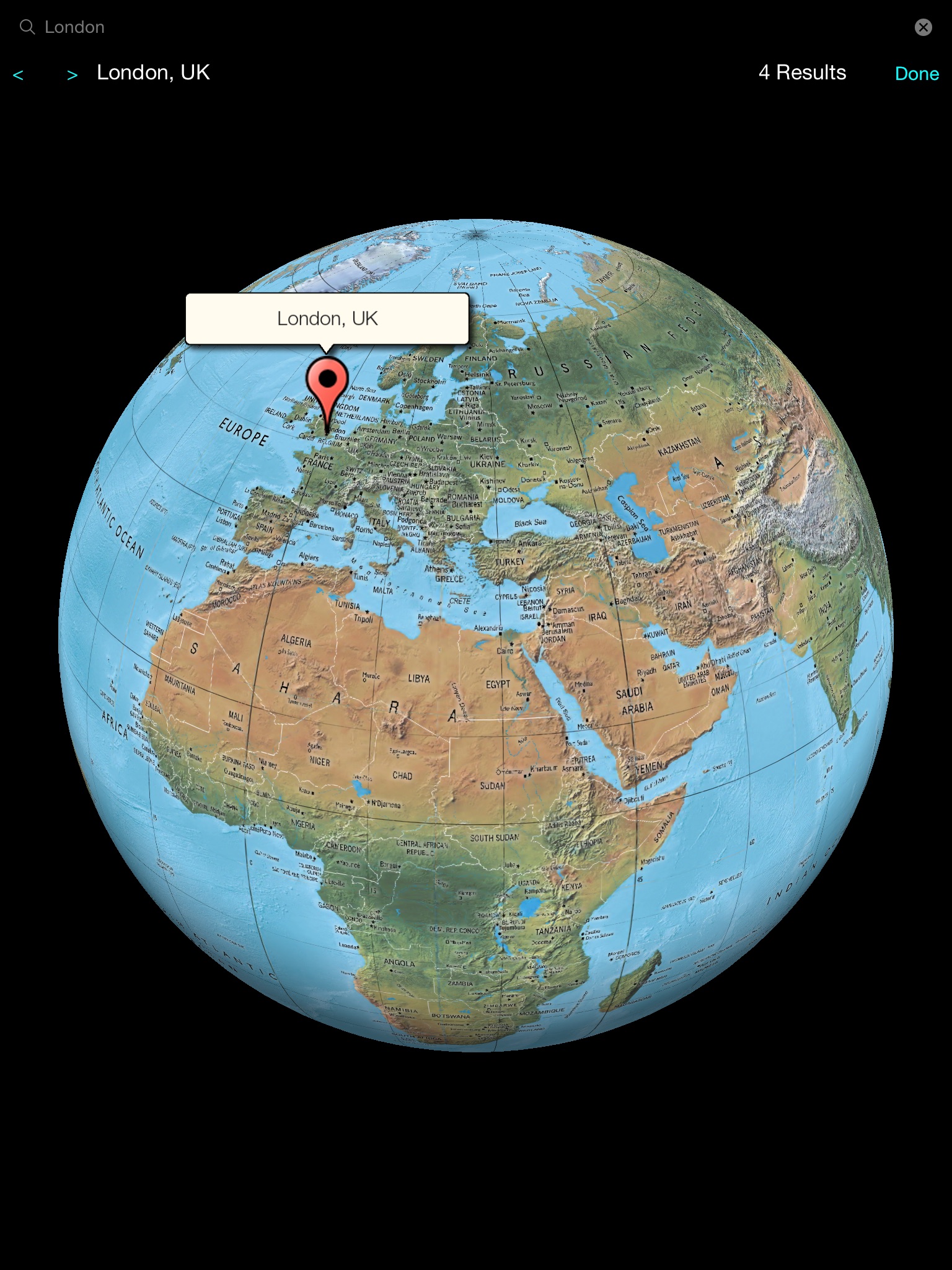
Tecnodidattica Planet Earth app for iPhone and iPad
Developer: Tecnodidattica
First release : 16 Dec 2014
App size: 301.3 Mb
Planet Earth Tecnodidattica is a virtual geographic globe for tablet devices. It shows the cartography of Tecnodidatticas GIS (Geographic Information System) series physical globes. The touch controls navigate the virtual globe by turning (drag) and enlarging (double tap and pinch to zoom). The Globe can enlarge to a virtual size of a meter in diameter to display the slightest detail. The Globe can use GPS or other location services to automatically center on your current location. The Globe is a powerful tool for discovering nations, regions, cities, natural features like rivers, mountains and peaks and important cultural sites and monuments.
The application can also show what the world looks like during the day or night. This feature replicates the rotational movement of the Earth on its axis and its revolution around the Sun. It takes 24 hours (one day) for the Earth to rotate on its axis while it takes 365 days (one year) for the Earth to circle the Sun.
The Globe’s lighting can progress at the actual speed (velocity = X1) or up to 1000 times faster (velocity = X1000) allowing you to see not only the passage from night to day but also the changing seasons on various parts of the globe. The fact that the Earth is tilted on its axis means that there are areas of the world which receive more or less direct sunlight depending on the time of the year. For example, when it is winter in the northern hemisphere, the Suns rays incline more and more on the surface of the Earth as they travel upwards to the North Pole which receives the least amount of sunlight. In fact, above a certain latitude and during specific times of the year, the Sun never rises, causing fully dark days. However, in summer, the Suns rays are very direct due to the way the Earth is tilted so above a certain latitude the sun never sets. This is a natural phenomenon which is referred to as the Midnight Sun.
The 3D application simulates the light shining on the Earth from the Sun but does not take into account the light diffused in the atmosphere which also illuminates the sky. This light is always present to a greater or lesser degree and accounts for the fact that theres always some perceptible light after the Sun goes down and before the Sun comes up.
The virtual simulation feature of the application cannot effectively show, from the outside, the diffusion effect of light. Areas of light and shade are only a schematic indication of sunlight on the Earths surface in a particular area on a particular day and time of year.
For more information about Tecnodidatticas physical globes please visit our website
http://www.tecnodidattica.com



